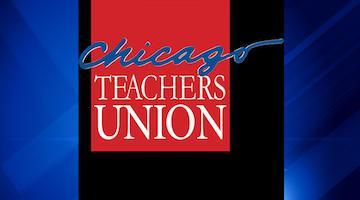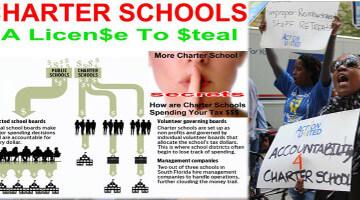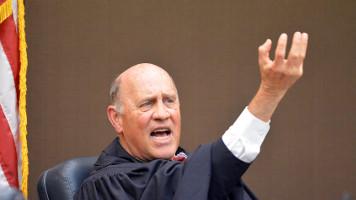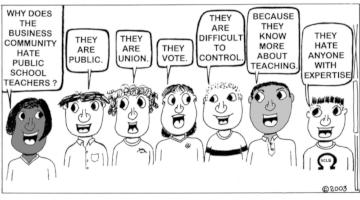The 9 day West Virginia school strike was a long time coming, and contains a number of useful, if not new lessons.
The first not at all new lesson is that successful strikes are possible wherever an overwhelming majority of the workforce is committed to it, whether or not those worker are in a “right to work” state, and whether or not the strike is endorsed by their union if they have a union at all. Neither of West Virginia’s two teachers unions endorsed the strike, and the leaders of both unions initially and repeatedly attempted to “settle” it for far less than the striking workers demanded.
A second lesson was that illegal strikes can succeed. Although a teacher walkout was explicitly prohibited by state law Governor Jim Justice dared not seek an injunction ordering teachers and others back to work because they enjoyed far too much public support. The largely successful New York City transit worker strike of December 2005 was illegal too, but workers achieved most of their objectives, despite the fact that the union leadership was forced by the authorities to resign and spend a few days in jail.
A third not at all new lesson was that all for one and one for all solidarity is key to successful strikes. Back in 1990 when teachers struck, school bus drivers were taking children right through their picket lines into the schools. This time the teachers went out along with the janitors, the bus drivers, the food service workers all demanding a 5% across the board pay increase, not just for school employees but for all state workers, along with a fix on ballooning health care premiums, out of pocket costs and an end to invasive and humiliating requirements for continued health insurance. When state legislators offered raises to the teachers alone they were emphatically hooted down.
A fourth lesson is that what happens in a workplace isn’t confined to that workplace. A worker is a whole person, a renter or mortgage debtor, a student loan debtor, a member of this or that church or other formation. People carry their home concerns into the workplace, and their workplace concerns home. They don’t stop being parents or residents of communities poisoned and pillaged by greedy extractive industries when they go to work. Part of the popularity of the teachers’ cause was their demand that the urgently needed health insurance fix come from a tax on the energy companies which have ravaged the state’s land and people the last dozen decades.
A fifth lesson, again not a new one at all is that in a wildcat strike the union officials may want to prematurely settle. The West Virginia strike was organized from the bottom up, not by union leaders. Beginning the second day of the strike union leaders and the governor’s office were already announcing its conclusion, the first time based upon a mere handshake with the governor. Teachers at the state capital and impromtu meetings in malls and other locations around the state rejected these premature deals. The final back-to-work agreement was distributed to workers, according to the World Socialist Website via robocall before the governor had signed any legislation.
What the teachers got, what they didn’t get.
What the teachers got was a 5% pay increase for all state workers, from cops to secretaries to janitors, assuming these are not outsourced as they are in most places nowadays, and a guarantee that the state will deduct union dues from paychecks, along with the understanding that unions are free to use these funds for political purposes.
They didn’t come close to achieving a tax on energy companies to fix the health insurance mess. They settled for representation on a so-called “task force” which is supposed to look into fixes for the state’s public employee health plan, and report back in October, theoretically in time for teachers and their allies to punish uncooperative parties at the polls. Some teachers called it a sellout.
But with two nearly interchangeable parties of capital in power, the outlook is far from rosy. Both houses of West Virginia’s legislature are dominated by Republicans, and most politicians of both parties are deep in the pockets of global corporations that shear off, grind up and sift entire mountain tops for the remaining coal, that poison the state’s water extracting shale and natural gas and which dump their toxic leavings pretty much wherever they please.
Governor Jim Justice is a billionaire scofflaw, the richest man in the state with holdings in resorts, energy companies and more who switched to the Democratic party to win the governorship in 2015, and rejoined the Republican party in 2017 to get on the Donald Trump train. Both West Virginia teachers unions endorsed Justice in his run for governor. A 2016 NPR investigation identified $15 million in delinquent taxes and fines owed by the governor’s mining companies in six states including $6.8 million in Kentucky and $4.7 million in West Virginia. By contrast, in many states (including Virginia but not West Virginia) nonpayment of state taxes or delinquent student loans will get your drivers license and/or professional license suspended.
The governor says the first year’s pay increase can be paid for with money the state already has, though it may be “prudent” to cut Medicaid. Republican legislative leaders however, declare that any pay increase must come from cutting money the state provides to local governments and Medicaid, which pays for the medical care of many poor children in West Virginia schools. Sick children, the poor and disabled do not possess the weapon of the strike. So there’s that. If some teachers feel both victorious and a bit sold out at the same time it’s easy to understand.
Anecdotal evidence indicates that union membership may be rising in West Virginia, as many who did not see the need for a union before this, or those who imagined they couldn’t afford to pay union dues are reconsidering. Though union leadership seemed more intent on ending the strike quickly than achieving its goals, union members in local schools figured prominently in the strike and the efforts leading up to it.
Last month, during oral arguments of the Janus case before the Supreme Court, labor lawyers declared that union recognition in a way, is the price for labor peace. When employers declare war upon organized workers, they should not be surprised when workers do the same to them, with or without the sanction of their unions. The fight is far from over in West Virginia, and teachers in Kentucky, Ohio and Oklahoma are considering the possibility of statewide job actions. In Oklahoma City the school board and superintendent are on record backing teachers if they decide to strike for more pay and better funding for schools there.
2018 is an election year, and there is little doubt that Democrats will attempt to harness and divert as much of this energy into the safe channels of their billionaire funded party, as they did in Wisconsin back in 2011. Starving and de-funding public education and breaking teacher unions have been the bipartisan project of both parties for a long time now. There are sharp struggles ahead.
Bruce A. Dixon is managing editor at Black Agenda Report and serves on the state committee of the GA Green Party. He lives and works near Marietta GA, the company town of Lockheed-Martin the Pentagon’s biggest contractor and can be reached via email at bruce.dixon(at)blackagendareport.com.

















